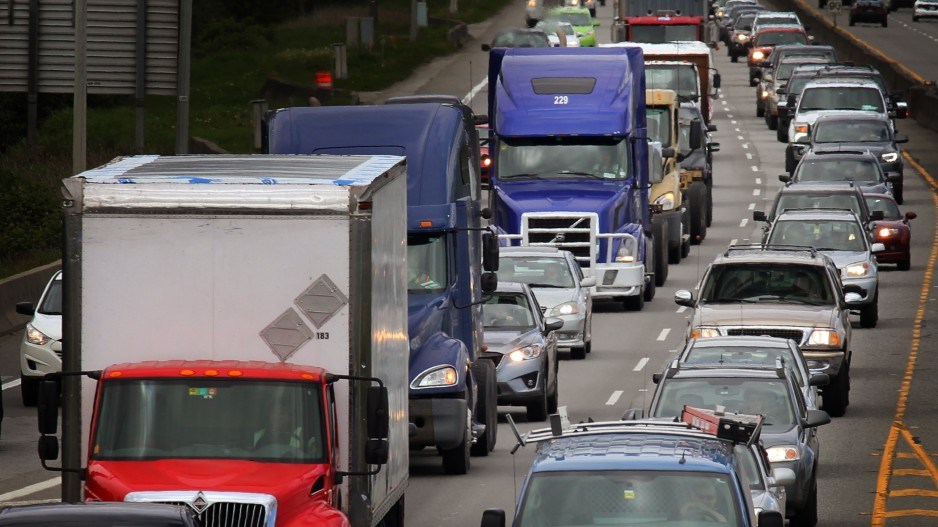Cost estimates for the proposed Broadway subway and Surrey light-rail transit (LRT) projects are going up, but TransLink’s chief financial officer wouldn’t say how high.
The Mayors’ Council’s 2014 funding plan, rejected last spring by voters, estimated the Broadway subway and Surrey LRT would cost $1.98 billion and $2.14 billion, respectively.
Cathy McLay said after the March 30 board meeting that studies “to make sure the costing is accurate and the technology is correct” have been delayed by a full quarter to June 30.
“When we did the original study, we did it up to 50% accuracy; now we’re trying to get it up to 85% accuracy,” McLay told reporters at the meeting. “When we first did those studies, our dollar was at parity [with the U.S. dollar]; it is not there today. Those have a dramatic impact on what the cost is going to be. We know that those studies require us to acquire land. The land value is not anywhere close to what it was back then. Stay tuned; we’ll let you know as they are finalized.”
Pressed further for preliminary cost estimates given by contracted experts to TransLink senior management and directors, McLay said: “Those numbers keep moving around. If I tell you one number, three hours from now it will be a different number.”
The leader of the No campaign in the 2015 plebiscite said TransLink’s evasiveness on the cost question for its two major expansion projects is typical.
“Originally they said they would have better cost estimates before the plebiscite started. Then they said it would be before plebiscite voting ended. Then the summer after the plebiscite,” said Jordan Bateman of the Canadian Taxpayers Federation. “It reinforces for No voters that they did the right thing. Giving [TransLink] a blank chequebook when they can’t tell you how much these projects are going to cost? That would’ve been a dangerous thing.”
Bateman added that McLay’s mention of technology could be cause to worry for Surrey. Peter Fassbender, the BC Liberal minister overseeing TransLink, has publicly touted a future SkyTrain line on the proposed Fraser Highway light-rail route, only to backtrack on his statements and say that he meant light rail.
Bateman also pointed to the $1.43 billion Evergreen Line SkyTrain extension being originally planned as a light-rail system. That changed when the 2008 business case recommended SkyTrain, despite higher capital costs.
The Evergreen Line was supposed to open in summer 2016 but has been delayed to early 2017.
Business in Vancouver has learned that the provincial government is in mediation with builder SNC-Lavalin (TSX:SNC) to resolve construction claims. In quarterly financials released last August, the scandal-plagued Montreal company announced a $43 million loss in its infrastructure division, due in part to major delays because of sinkholes in the Evergreen Line tunnel.
Steer Davies Gleave and Hatch Mott MacDonald were hired on a $1.56 million conceptual design and cost estimate study for the Surrey proposal in early 2015. They subcontracted Stantec (TSX:STN), Via Architecture, Anthony Steadman and Associates and the Stewart Group. Stantec is leading the $1.4 million study on the Broadway proposal with subcontractors Jacobs Associates, Golder Associates, Allen Parker Consulting, Site Economics, Westco Consulting, Edward LeFlufy Urban Design & Architecture, Locke & Locke, Dessau, BTY Group and Anthony Steadman and Associates.
No funding for either project was included in the federal budget. The requests for proposals for the engineering, planning and business case technical studies said the original deadline for the research was summer 2015. TransLink had been targeting a March 2016 deadline to apply for federal funding. The federal budget included no capital funding, but it did pledge to increase federal funding from one-third to one-half of major transit projects. •




